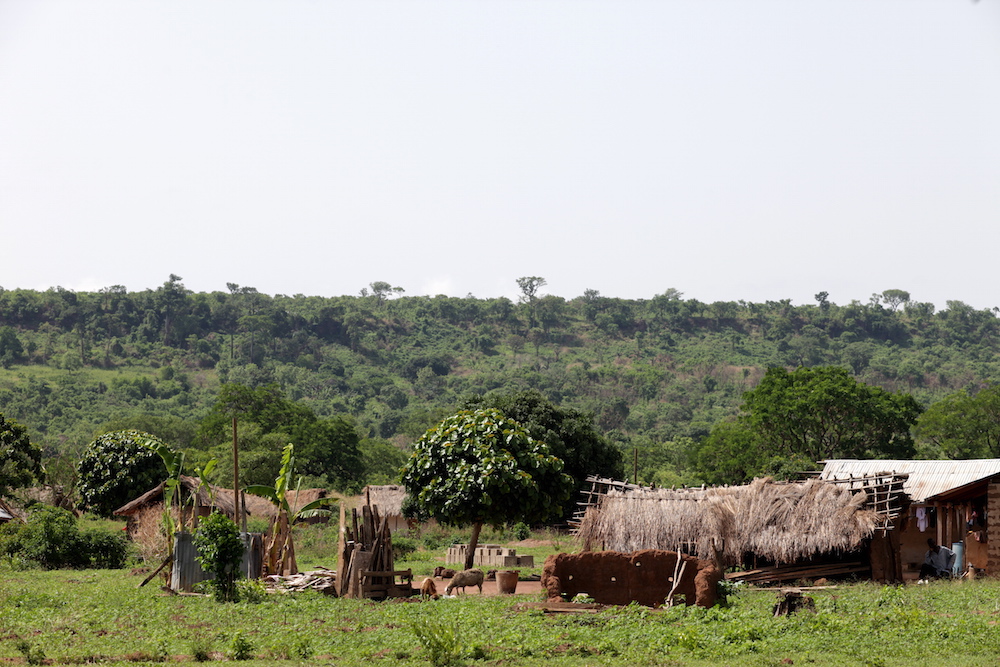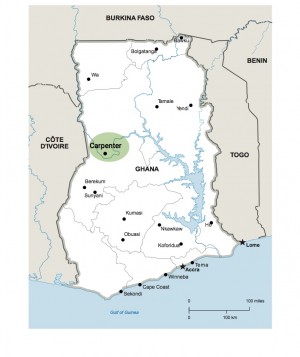
GRID and NEA work to achieve sustainable development in one of the least serviced, poorest areas of the country of Ghana: Carpenter and its surrounds. (Read Focus on Sustainability to learn more about our work and impact.)

Carpenter, the centre of GRID and NEA’s area of impact
Carpenter is in Ghana’s Northern Region. This region, home to about 2.5 million people, has only 17 doctors. None of the region’s clinics has a doctor, and even some hospitals lack one. Medicine is scarce and medical equipment is in short supply.
The vast majority of our project area residents are subsistence farmers or fishermen. Hunger and disease are endemic. There is a shortage of food in general and of protein in the diet in particular, which affects the local population’s health and productivity. Malaria continues to be the number one killer in the area, and malaria treatment remains unaffordable for many. Even though Ghana offers a subsidized health insurance program that gives participants free access to basic services, many people in the area cannot afford the five dollars to subscribe to this insurance.
Hospitals are an integral part of any health care infrastructure. For the past twenty years GRID and NEA have been methodically laying the groundwork for a strong local health care system, ensuring basic clinic care as well as training and education for village health volunteers in each village. Four health clinics or compounds have already been built or rehabilitated and staffed. Creating these “health care spaces” has made it possible to treat and care for men, women and children who would otherwise have no recourse to medical attention.

Lineups to see a physician are long at our annual health team clinics. Each day that the clinic is open, about 1,000 people seeking care wait patiently for their turn.
Many of the surgeries and procedures performed have saved patients from certain death.
Our health volunteers have saved women who have hemorrhaged after giving birth, controlled serious heart conditions, repaired broken limbs, removed tumours and stabilized patients struggling to manage chronic conditions. Because vision issues, including glaucoma, are prevalent, our eye team takes thousands of prescription glasses and the best optometry equipment possible with them every year. Our annual medical team gets individuals back on their feet so that they can take care of themselves and their families. But at the end of two weeks, these dedicated volunteers must return to their homes.
With a permanent general hospital in the region, this level of health care would be available 365 days of the year.